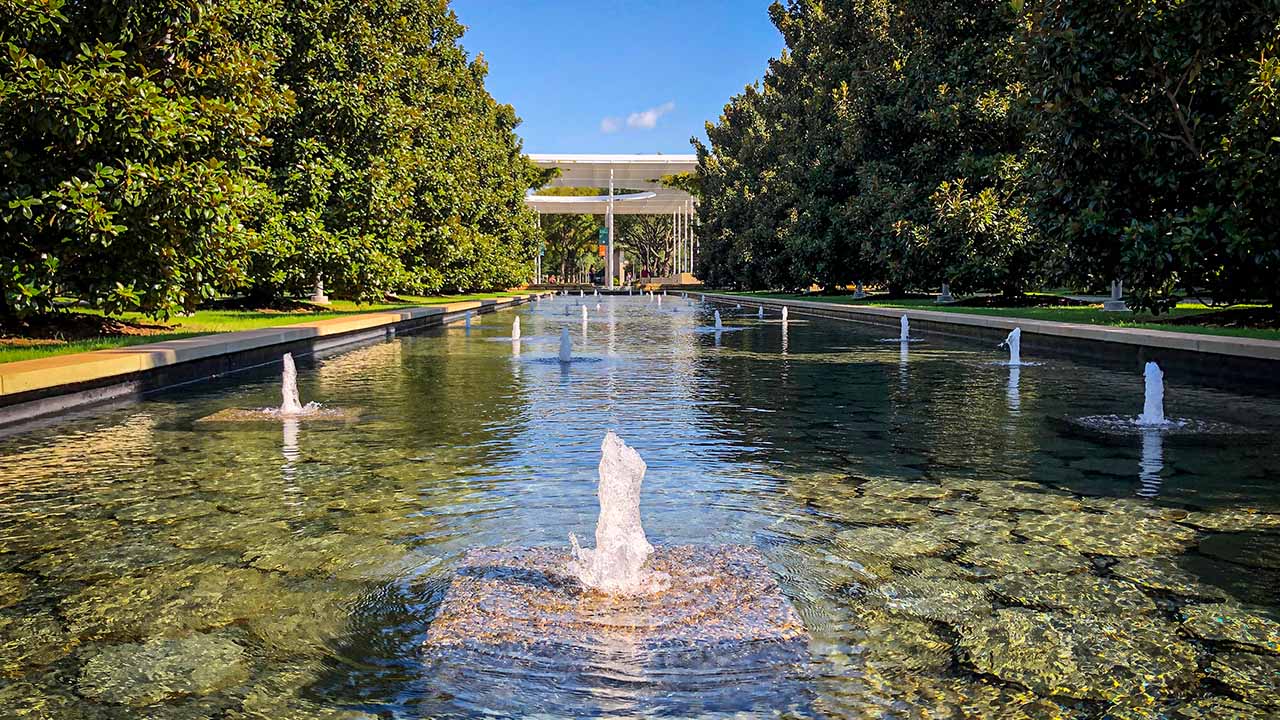Environmental Programs

Environmental Management works to ensure that UT Dallas operates in compliance with applicable environmental regulations, which aim to protect human health and the environment.
Environmental Programs
Air Compliance
Air pollutants, from a variety of sources, are highly regulated by the EPA. The most common sources are from the combustion of fuel from boilers, emergency engines, etc. This type of equipment requires air permits for operation, as well as continuous monitoring and control of their operations.
Environmental Management maintains and updates the University’s air permit authorizations, tracks emissions sources, determines permit applicability, and prepares permit applications. Please contact us prior to purchasing or installing any equipment that could be a potential source of air pollution.
Related links:
- EPA: Clean Air Act
- EPA: Air Topics
- TCEQ: Texas Air Quality
Asbestos Safety Program
Asbestos is a versatile material with high tensile strength, flexibility and resistance to heat, chemicals and electricity. It was used widely in the United States since the early part of the last century, and any building constructed before 1980 could have asbestos containing material (ACM).
Submit a Preliminary Asbestos Report
Be sure to contact Facilities Management before any renovations, including hanging items. Asbestos fibers may be released into the air by the disturbance of asbestos-containing material during product use, demolition work, building maintenance, repair and remodeling. This can include walls, ceiling, floors and some work surfaces. In general, exposure may occur only when the asbestos-containing material is disturbed or damaged in some way to release particles and fibers into the air.
Our asbestos management program offers:
- Collection of sample building materials to analyze for ACM through an external contractor.
- Oversight for in-house Operations and Maintenance activities, serving as a project supervisor.
- Oversight for renovation projects involving asbestos, as well as day-to-day operations and maintenance of ACM.
- A liaison with state and regulatory agencies for asbestos management issues.
- Retention of appropriate documentation.
Related links:
- EPA: Asbestos
- DSHS: Asbestos Program
Storm Water Compliance
UT Dallas is located within the boundaries of the City of Richardson’s “urbanized area” (UA) and is regulated under the Texas Commission on Environmental Quality (TCEQ) Phase II Municipal Separate Storm Sewer System (MS4) permit. The overall goal of the MS4 permit is to improve the water quality of Cottonwood Creek flowing through our campus into receiving waters and to protect the US waterways from pollution.
Environmental Management manages the University’s storm water compliance programs, including permitting, spill prevention, above-ground storage inspections, and outfall inspections.
Understanding Storm Water Management
Stormwater runoff occurs when precipitation from rain or snowmelt flows over the ground without sinking in. Impervious surfaces like roofs, parking lots and sidewalks prevent the stormwater from naturally soaking into the ground. As stormwater runoff flows over pedestrian walkways, landscaped areas, roadways and parking lots, it picks up debris, chemicals, dirt and other pollutants.
It is important to remember that anything entering a storm sewer system is discharged untreated into waterbodies that are used for recreation and eventual drinking water. Polluted runoff is the nation’s greatest threat to clean water. The resulting stream or river pollution can have a great effect on the aquatic life in all bodies of water.
By practicing pollution prevention habits, campus community members can keep pollutants like dirt and common garbage that collect on paved areas from washing into storm drains.
Contractors who are involved with construction projects on campus must comply with all applicable regulations regarding stormwater protection.
Related links:
- UT Dallas: Stormwater Management Plan
- UT Dallas MS4 Annual Reports: 2019, 2020, 2021
- EPA: Storm Water Pollution Prevention
- EnvCAP: Texas Storm Water Training
Spill Prevention Control and Countermeasures
The EPA’s oil spill prevention program is part of the Clean Water Act (33 USC § 1251), which includes the Spill Prevention, Control, and Countermeasure (SPCC) and the Facility Response Plan (FRP) rules. The SPCC rule helps facilities prevent a discharge of oil into navigable waters or adjoining shorelines.
Environmental Management maintains the University’s SPCC plan and tracks spill sources. We update the plan every five years.
Please contact us prior to purchasing oil drums over 55 gallons.
Understanding Illicit Discharge
Illicit discharge: Any discharge to Municipal Separate Storm Sewer Systems (MS4) that is not composed entirely of storm water.
Direct illicit discharge examples:
- Sewage cross-connections with storm drains
- Straight pipe connections
- Industrial and commercial cross-connections with storm drains
Indirect illicit discharge examples:
- Groundwater seepage into the storm drain pipe
- Spills that enter the storm drain system at an inlet
- Dumping liquid into a storm drain inlet
- Outdoor washing activities that create flow to a storm drain inlet
- Non-target irrigation from landscaping or lawns that reaches the storm drain system
Please report any illicit discharges or spills to 972-883-4591/6114 or email at environment@utdallas.edu.
Related links:
Hazardous Waste Management
Hazardous waste is regulated and enforced at the federal, state and local levels. UT Dallas policies are in place to aid in compliance with these regulations. Research and Academic Safety is responsible for the development and implementation of proper management practices for all aspects of the handling, storage and disposal of hazardous wastes generated on campus.
Each University employee, student and volunteer must comply with the campus hazardous waste management policies and all applicable regulations. Every individual is responsible for labeling and identifying their waste, proper storage of waste in their area, and requesting timely waste removal. All chemical wastes should be managed as if they are hazardous wastes.
Specific Guidelines:
- Chemical Waste
- P-Listed Waste
- Battery Recycling
- Laboratory Waste Disposal Guide
- Biohazardous Waste – Biological Safety
- Radioactive Waste – Radiation Safety
- DEA Controlled Substance Disposal
Related Links: